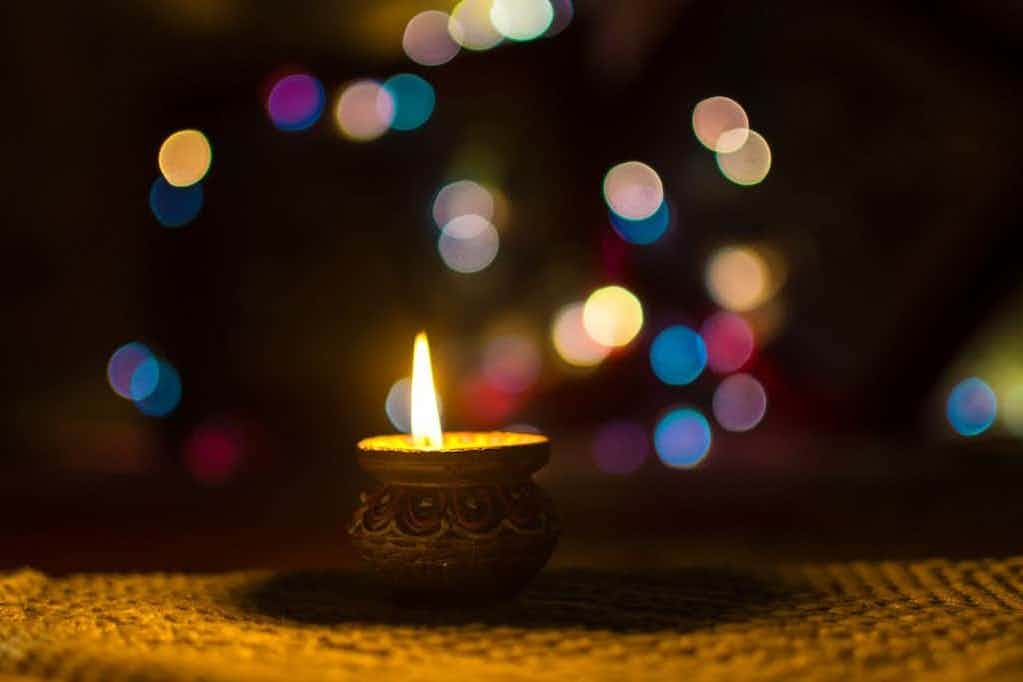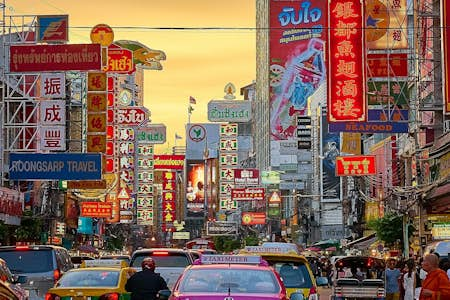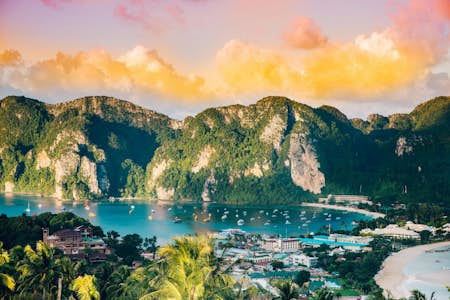After a year of unknowns, lockdowns, staycations and quarantines, we’re all ready for a celebration. Diwali, a festival of light and love, is just the thing we all need to shine some positivity into our lives.
Diwali’s name originated from a term meaning “a row of light”. In Sanskrit, the festival is known as Deepavali. The festival typically runs for five days and is known as the biggest festival in India! The festival is the celebration of the triumph of good over evil. It is a time for deep introspection celebrating victory and freedom.
The festival is usually celebrated by those who practice the Hindu, Sikh, and Jain religions. The festival is, therefore, prominently based in India, but is also a national holiday in Singapore, and other South Asian countries. There are also large Hindu, Sikh, and Jain communities in countries such as the United States, Australia, and the United Kingdom!
If you are in a community where Diwali celebrations are happening, get involved! The festival of lights is a fantastic time to bring people together and honours all the good things in life. Diwali is a time to “let light shine within yourself, and also shine this light outwards.” Here is your guide on how to make the most of Diwali this year, despite social distancing restrictions.
When is Diwali in 2020?
Diwali runs over five days, but the main celebration happens on the third day. This year, the festival will run from the 12th of November until the 16th, with the main day being on the 14th. According to tradition, each day pays tribute to the Goddess Lakshmi in a particular way.
- Dhanteras is the name of the first day, and legend tells us the Lakshmi was born from the ocean on this day. To welcome her, celebrators usually purchase items of gold and other metals.
- Overlapping with the third day this year, Naraka Chaturdasi or Chhoti Diwali (small Diwali) are terms used for the second day of Diwali. Legend says that the demon Narakasura was destroyed on this day. To celebrate, those in Goa burn effigies of demons on the second day to commemorate the legendary event.
- Amavasya, the 3rd day is celebrated on the darkest day of the month. It is the most important day of Diwali, particularly in north and west India. This is when Goddess Lakshmi is most celebrated, and people light candles to place in their homes. Traditionally, firework displays also take place. This is why Diwali means “Festival of Lights”.
- The fourth day is known as Govardhan Puja and is the day that Lord Krishna defeated the god of thunder and rain, Indra. This day is often celebrated as a start to the new year.
- Finally, the fifth day is called Bhai Duj and celebrates sisters. On this day, siblings come together to celebrate their special bonds through sharing food.
What do you need to celebrate Diwali?
Candles, candles and more candles! As the festival that celebrates light, Diwali is all about illuminating your homes. Typically, clay lamps and oil lanterns are floated down rivers, placed in the streets and taken to places of worship. As the festival is also a celebration of togetherness and family, these are also central themes for the festival. Families will gather to eat special food, and sweets dressed in their best new clothes. Lighting traditional oil lamps known as diyas is also common practice amongst families.
What food do you eat during Diwali?
Sharing food is a massive part of the traditional practices for Diwali. Mithai, the Hindi term for sweets, are an essential addition to the festive feast, so this is the perfect excuse to get the sugar fix you need! Sweets are exchanged between families and friends as a way of celebrating the family orientated nature of Diwali. Some of the most popular sweets or mithai include:
- Jalebi, which is a pretzel-shaped flour batter that is deep-fried and then coated in in sweet syrup.
- Gulab Jamun are deep-fried milk-based balls flavoured with spices and topped with nuts.
- Kajoo Barfi is thickened milk or clarified butter that is combined with sugar, spices & crushed-up cashew nuts.
Other savoury dishes are also traditionally available from street food stalls across India and are equally essential for a Diwali banquet.
- Samosas are a triangular-shaped pastry stuffed with minced meat, potatoes, lentils and onions and then deep-fried. Aim for veggie options, as Diwali is traditionally a cleansing, vegetarian holiday.
- Bombay mix is a traditional snack and is usually purchased in packets much like crisps. The contents contain dried peas, lentils, chickpeas and noodles heavily seasoned with spices and salt.
These moreish snacks and sweets will undoubtedly spice up your Diwali. Try making them yourself or find out who makes the best dish in your local community! After all, sharing is the nature of the festival. When sharing food with others, it is crucial to keep COVID-19 guidelines in mind.
How can you get involved in Diwali 2020?
Getting involved with local communities who celebrate Diwali is an uplifting experience. With local restrictions in place around the UK due to the COVID-19 outbreak, you may think this is challenging, but there are several ways you can celebrate. Many celebrations have been cancelled, but there are still festivities have been adapted for 2020.
Leicester will not be holding their usual light switch-on ceremony. Usually, the event includes music and dancing; however, this year, the event is cancelled. They will; however, still be switching on their festive streetlights. While maintaining a safe social distance, an outing to the city's golden mile will be well worth it.
Trafalgar Square in London traditionally holds one of the largest celebrations of Diwali in the UK. This year, you can join in the festivities virtually, in an online event.
The government has also issued official guidelines on how people can celebrate with the COVID restrictions in place. They are the following:
- Celebrate at home and meet up with as few other households as possible. Up to two households can meet in any location, as long as the group number totals six or fewer people.
- Wash your hands frequently and maintain a 2-metre distance from those who are not in your household - even if you are socialising in each other's homes.
- For the traditional practice of sharing food, the government advises that any food should be pre-wrapped and that households should use their own cutlery and crockery.
- Do not join large gatherings that do not comply with the COVID-19 guidelines. It is unlikely the local council would have approved these.
- All gatherings should have strict rules in place to keep you and others around you safe.
- Do not stay at the gatherings for extended periods. Prayer and worship are important, but you shouldn't stay at the event long after these rituals.
- It is also vital you do not hug or touch anyone else.
Following these guidelines will ensure you get the most out of the Diwali festivities!
A time for Joy, Light, Sweets & Happiness
Even though we won’t be able to celebrate with all our loved ones, Diwali can still be festive and fun. This year offers everyone an excellent opportunity to come together within their communities and experience an uplifting, cultural celebration of life and light. With the guidelines and safety measures in place, Diwali 2020 will be the happy time we all need.








